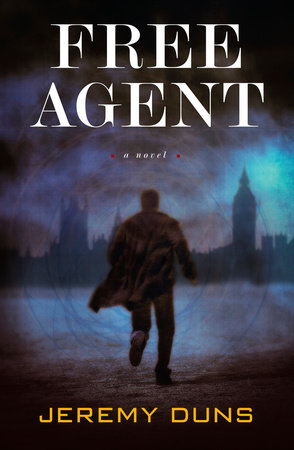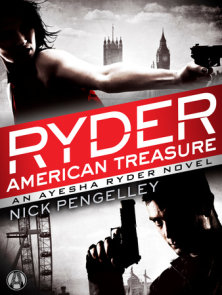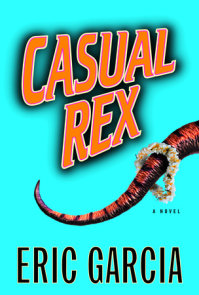READERS GUIDE
Questions and Topics for Discussion
INTRODUCTION
The year is 1969 and the Cold War continues to wreak havoc around the world. In Nigeria, the Biafran rebels and federal forces are propped up with military support from the Soviet Union, Great Britain, China, France and other countries. As thousands of children and other innocent civilians starve and die, the superpowers jockey to secure an African base. In the midst of it all, a KGB officer decides to defect—with an offer of information on a high-level British double agent. MI6 is already rife with paranoia as they set out to determine whether the mole exists or whether the whole drama is a KGB ruse to cause upheaval just days before the British Prime Minister is set to visit the war-torn nation.
Twenty-five years earlier—just after the close of World War II—Paul Dark was recruited by his father, the now-legendary MI6 agent Lawrence Dark, for a top-secret job, code-named Sacrosanct. Without official authorization, father and son scoured the German countryside hunting down and executing Nazi war criminals. Young, idealistic, and eager to please his father, Dark followed orders unquestioningly—until a knife wound landed him in a Red Cross sanatorium. There he met Anna, a beautiful Russian nurse. He initially resisted her, but soon succumbed to her charms and his suspicions about the legitimacy of his father’s mission.
Before Dark fully understood his feelings, Anna delivered a shocking revelation—she was a Communist agent sent to recruit him and turn him against his own father. The fact that she confessed her duplicity and claimed to have fallen in love with him did little to soften the blow. Dark fled the hospital only to return to find Anna, shot dead by British agents. Reeling with rage and uncertainty, he vowed to make amends to the only woman he knew he would ever love by becoming a double agent for the Soviets.
When Colin Templeton, the head of MI6, summons him to an urgent late-night private meeting, Dark little suspects that his lifetime of working in the shadows is in danger. But as the two review the would-be defector’s interview transcripts, Dark is stunned to discover that Anna is not dead, his father was likely murdered by the Russians and his cover is about to be blown—unless he acts swiftly. Fortunately, Templeton is too concerned with being suspected as the mole himself to pick up on Dark’s discomfort and the latter seizes the opportunity to set up a trail of red herrings.
Dark’s sole hope for avoiding either execution or permanent retirement in Moscow lies in reaching Nigeria before his colleagues. His goal is twofold: neutralize the defector and find Anna. But once in Lagos, Dark gets caught up in a deadly conspiracy he must untangle, all while Henry Pritchard—his father’s right-hand man and the only agent who suspects the truth—is hot on his trail.
Riveting and fast paced, Free Agent introduces a bold and original new protagonist to the spy novel genre. Driven to betray his country by love and his own sense of honor, Dark finds he has become as ruthless and morally ambivalent as the world he inhabits.
ABOUT JEREMY DUNS
Jeremy Duns grew up in Africa and Asia. A graduate of Oxford University, he worked as a journalist in Belgium for several years and now lives in Stockholm, Sweden, with his wife and two children. Free Agent is his debut novel and the first in a trilogy.
A CONVERSATION WITH JEREMY DUNS
Q. What made you decide to make your protagonist a double agent?
I wanted to write a spy thriller set in the Cold War, but I wanted to bring a fresh perspective to it rather than simply repeating what had already been done. The hunt for a double agent, or mole, is a plot in many spy novels of that period, but very few take the viewpoint of the moles. I wondered what it would have been like to be one of the Cambridge Ring. How would it have felt to deceive everyone around you and live in constant fear of exposure? It seemed like an interesting and suspenseful situation and I thought it would allow me to explore the Cold War through new eyes.
Q. Of the many now-infamous British double agents, who do you think was most interesting and why?
I find them all interesting, but I’d have to say Kim Philby. He got the furthest of them all, becoming very senior in MI6, and almost everyone who knew him found him extremely intelligent and charming company. In his memoirs, published in the late sixties, he painted a picture of himself as a man who stuck to his principles through thick and thin. But some of those who knew him in his later years in Moscow have since revealed that he was terribly disappointed by the reality of life under Soviet rule. There’s been much more written about him than the others, but for good reason, I think.
Q. Is Dark himself based on a real double agent?
He has a roughly similar background to the Cambridge Ring, but other than that, no one in particular. He heads the Soviet department of MI6, as Philby did, and has a troubled relationship with his father, like Donald Maclean. Some scenes were inspired by real events. His rummaging around Templeton’s house, for example, was inspired by an account of Anthony Blunt’s clearing up Guy Burgess’s flat after he and Maclean fled.
Q. For a work of fiction, you include an extensive bibliography. What was the most surprising thing you discovered in the course of your research?
I was surprised at some of the declassified material. For example, the Foreign Office’s dossier on Harold Wilson’s trip to Nigeria included a long letter from a British professor who had just visited the country, volunteering his impressions of all the leading players in the war. This was seized by officials and some of it went into the briefing notes given to Wilson for his visit. I read a lot of surprising and fascinating material, only a fraction of which made it into the novel.
Q. What do you think it is about the Cold War period that continues to fascinate?
It was a decades-long war conducted largely in secret across the globe, and it brought the world to the brink of destruction. It was waged across many spheres and the effects of it are still felt today—and there’s still a lot we don’t know about it.
Q. A character mockingly refers to Dark as 007. What are the challenges of writing a spy thriller in the post-Bond world?
James Bond still dominates the espionage genre, and writing about a British secret agent in the Sixties probably made me more conscious of this. It does become hard to use some ideas without bringing Bond to mind, but sometimes I aimed to do that. The first chapter, for example, is a play on those scenes in Ian Fleming’s novels in which M summons Bond to tell him about his next mission—with a twist.
Q. Dark seems to combine 007’s charm and ruthlessness with the moral ambiguity of Patricia Highsmith’s Tom Ripley. Who are your literary influences?
Fleming was an influence, as was Patricia Highsmith, although I hope Dark’s a more empathetic character than Ripley. I was also inspired by John le Carré, Frederick Forsyth, Len Deighton, Elleston Trevor, and Geoffrey Household to name a few.
Q. To what extent do you believe the Cold War is responsible for the problems Africa currently faces?
I think in some cases the dynamics of the Cold War exacerbated existing situations. Nigeria was already facing problems as it emerged from colonial rule and the civil war began without any other nations becoming involved, but the superpowers’ involvement undoubtedly prolonged the war. Africa was in some ways a distant battlefield on which the opposing sides of the Cold War could try to exert influence, selling ideas and weapons, often with disastrous results. Some African countries are still recovering from that, and some are experiencing it in new forms.
Q. Will Paul Dark make another appearance? What are you working on now?
Free Agent is the first part of a trilogy featuring Paul Dark, with all three novels taking place in 1969. I’ve just finished writing the second novel, Free Country, which is mostly set in Italy, and have begun researching and making notes for the third book.
DISCUSSION QUESTIONS






















